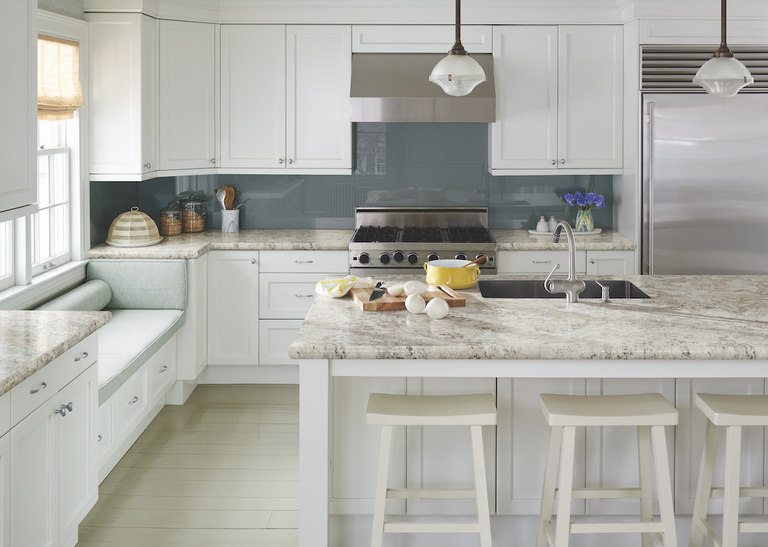Frequent reminders to wash our hands and refrain from touching our faces have kept personal hygiene top of mind in the wake of a novel coronavirus pandemic. Those measures — along with appropriate social distancing — remain the most effective steps to slow the transmission of airborne pathogens like the coronavirus known as COVID-19.
But such pathogens, along with bacteria, mildew, and mold, can also live on surfaces in our homes for up to several days. Certain materials and finishes offer antimicrobial protection, meaning they either kill microorganisms or stop their growth.
To find out more about which countertops, hardware, flooring finishes, paint, and textiles may help limit the growth of microbes and other organisms in our homes, here are the thoughts of several design experts, from architects and builders to textile and interior designers. Hope you find this useful.
What countertop surfaces are antimicrobial?
“Quartz is one of the hardest nonprecious stones on earth, therefore countertops made from quartz (which are made of ground quartz combined with a small amount of resin) are hard, stain- and scratch-resistant, and antimicrobial,” says Cyndy Cantley of the Birmingham, Alabama-based design and cabinet firm Cantley and Company.
“Furthermore, quartz is completely nonporous, so resealing is not needed. There are numerous manufacturers of quartz or quartz blend countertops (including Silestone, Dekton, and Caesarstone), so every color and finish is available,” adds Cantley.
“Copper is another natural antimicrobial surface that has no off-gasses and ages with a beautiful patina over time,” adds Cantley.
“And semiprecious stone countertops (think agate, tigereye, and petrified wood) are also stain- and scratch-resistant, resistant to bacteria, and some of the most beautiful surfaces you could ever use — though pricey.”
“Several manufacturers, such as Wilsonart, make antimicrobial laminate countertops,” notes Cantley. “Protection from damaging microbes like mold and mildew is actually built into the surface.”
Are there any fixture and hardware materials are antimicrobial?
“Lead-free copper is a great choice for hardware, as the material is naturally antimicrobial and never needs sealing.”
Another option? “Hands-free fixtures in the kitchen,” says Franklin, Tennessee-based architect Kevin Coffey. “Thanks to several manufacturers — such as Delta, Kohler, and Moen — there are far more stylish options available today than there used to be.”
Are there any finishes or sealants that offer additional protection?

